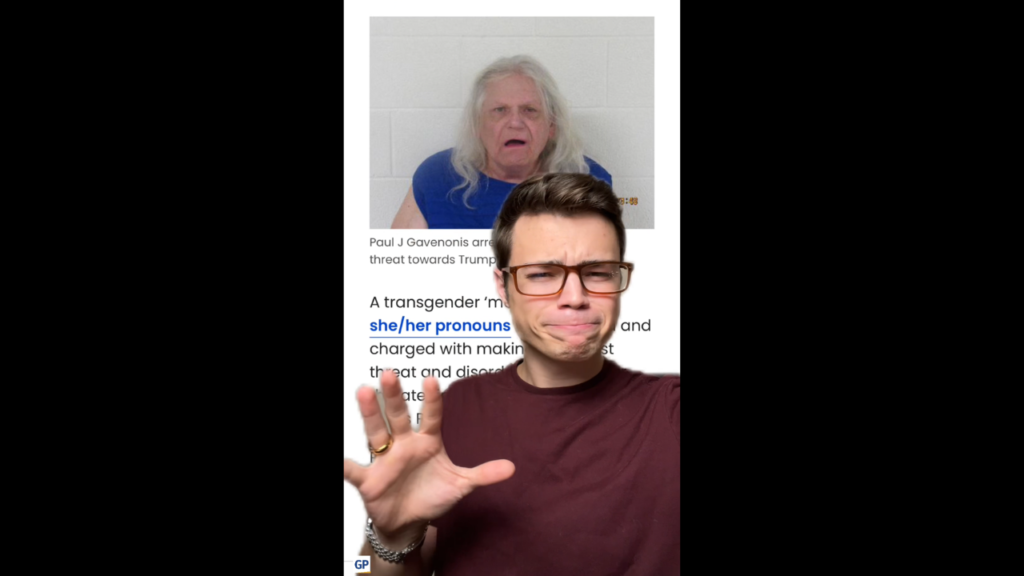As the election drew close, tensions heightened among political factions in the United States, with the left intensifying their narrative that associates Donald Trump and his supporters with fascism. This strategy included a series of attacks and allegations aimed at undermining Trump’s standing and promoting an atmosphere of fear regarding his supporters. The Gateway Pundit reported an alarming incident involving a 74-year-old man named Paul J. Gavenonis, who was arrested for allegedly making a terroristic threat against Trump. This incident took place just before Trump held a rally at the Bryce Jordan Center in State College, Pennsylvania, amidst a charged political atmosphere heightened by critical articles published by media outlets like The Atlantic.
Paul J. Gavenonis was taken into custody after he allegedly expressed his desire to harm Trump while acquiring passes for the rally. Witnesses reported that Gavenonis made several disturbing comments, indicating a violent inclination towards Trump. He explicitly stated, “I hate Donald Trump. I’d like to shoot that guy,” revealing his mindset and the seriousness of his comments. These statements were not mere expressions of political dissent; rather, they showcased an alarming tendency toward violence that reflects broader issues within the current political discourse. Upon questioning by the Secret Service, Gavenonis reinforced the alarming nature of his threats, suggesting that a violent act against Trump was something he might consider.
In the wake of these threats, Gavenonis was charged with terroristic threats and disorderly conduct. His comments were detailed in an affidavit that described how he expressed frustrations about Trump while at a transportation office. They reported that during his discussion, he made gun gestures and spoke about climbing buildings to create a vantage point for carrying out his threats. The fear created by such statements, especially in the vicinity of a political rally, raised concerns among witnesses who felt threatened by the possibility of violence occurring at the upcoming event. Consequently, the local law enforcement agencies like Penn State police and the U.S. Secret Service took his threats seriously, acting swiftly to detain him.
This incident is emblematic of a troubling trend wherein extreme factions within the left polarize their rhetoric, resorting to threats and inciting fear. It raises questions about the state of political discourse and the impact such tensions have on public figures and their supporters. With an escalation in both verbal and physical threats against Trump and other conservative figures, the political landscape continues to be shrouded in a climate of fear that potentially encourages similar incidents. Many began to recognize Gavenonis’s actions not as isolated incidents but as part of a larger pattern of aggression utilized by radicals who believe violence may be justified in their political battles.
Moreover, figures like Vice President Kamala Harris have been criticized for being unable to present a compelling alternative to Trump and the policies he represents. As public sentiment shifts and the election nears, there’s a growing concern that some radical factions view violence as a last resort to oppose what they perceive as a fascistic ascendancy. This scenario highlights the desperation borne from political frustration and reveals how political rhetoric can sometimes overspill into outright threats and vandalism. Such a dynamic underscores the fragile state of American political culture, where fervent opposition can morph into dangerous behavior.
Ultimately, the arrest of Paul J. Gavenonis highlights an urgent need for reflection on the current state of American political culture. With a week remaining until crucial elections, it is essential for political leaders and their supporters to regroup and reconsider the implications of their rhetoric and actions. Advocating for respectful dialogue and a commitment to democratic processes may be the only path forward for a polarized society. Furthermore, it is crucial to protect public officials from the potential ramifications of fanatical opposition while encouraging peaceful expressions of dissent. Conclusively, in light of such violent threats, American democratic institutions must be guarded diligently, and calls for unity and peace within the political landscape should resonate louder than the threats of violence.

